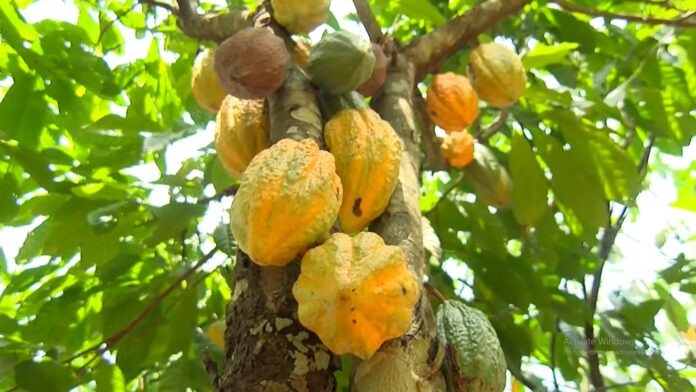Ghana’s cocoa industry is set to receive a much-needed boost as the country’s COCOBOD plans to use a portion of a $200 million World Bank loan to rehabilitate plantations that have been adversely affected by the cocoa swollen shoot virus. The virus has led to a significant reduction in yields and the destruction of trees, resulting in a decline in cocoa output from Ghana, the world’s second-largest cocoa producer.
About 500,000 hectares of farmland have been wiped out by the disease, leading to a decrease in cocoa production. In the previous season, Ghana’s cocoa output declined to 600,000 metric tons, down from a peak of 1.048 million tons in the 2020/21 season. Reasons for the decline include the cocoa swollen shoot virus, aging plantations, illegal mining, and smuggling.
A significant portion of the loan, totaling $132.8 million, along with counterpart funding, will be utilized by Cocobod to rehabilitate farms and gain a deeper understanding of the virus strains. According to Cocobod’s deputy Chief Executive in charge of operations, Emmanuel Opoku, the rehabilitation process will take a minimum of five years before economic production can be attained. Economic challenges and limited funds have hampered efforts to address the crisis.
The rehabilitation process involves taking over disease-infested farms, cutting and replacing sick cocoa trees, and facilitating growth to a fruiting stage before handing them back to farmers. In 2018, Cocobod implemented a similar rehabilitation program using a $600 million loan from the Africa Development Bank (AfDB), benefitting more than 88,000 hectares of farmland.
Alhassan Bukari, president of the Cocoa, Coffee, and Sheanut Farmers’ Association, emphasized the need for aggressive rehabilitation efforts, considering the significant impact on farmers. It is evident that intervention is crucial to mitigate the effects of the cocoa swollen shoot virus and rejuvenate the cocoa industry in Ghana.

